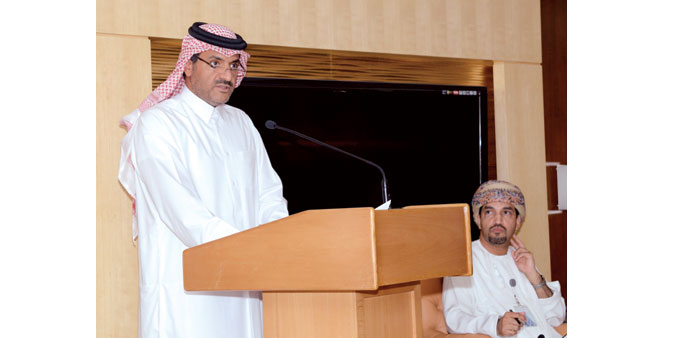Qatar delivers LNG to some 26 out of a total of 29 LNG importing countries, accounting for 33% of the world’s LNG supply, said Qatargas CEO Sheikh Khalid bin Khalifa al-Thani.
“The bulk of these supplies are to Asia, which holds 75% of total LNG demand,” he said while presenting Qatargas’ views on the global LNG market fundamentals at the monthly gas lecture organised by the Gas Exporting Countries Forum (GECF) in Doha recently.
On the supply and demand in key LNG markets in Latin America, Europe and Asia, Sheikh Khalid said, “The number of LNG importing countries in Latin America has doubled from only three in 2007 to six in 2013 and is expected to reach nine by 2016.
“Even though gas demand forecast in Latin America is relatively high, long-term volumes of LNG will have to compete with domestic and piped gas. Additionally, these markets will most likely be supplied by North American LNG from upcoming new regional projects” he said.
LNG demand in Europe has been reduced by the economic slowdown, Asia’s strong pull on flexible cargoes, cheap US coal imports and government subsidized renewable energy sources.
However, Sheikh Khalid expressed optimism regarding the resurgence of Europe’s LNG demand as its economy strengthens.
“Europe’s long-term LNG demand will rebound as its economy improves and indigenous gas declines; supply source diversity becomes critical and gas is required to support intermittent renewable energy needed to meet environmental targets. We believe deliveries will approach 100mn tonnes per year (tpy) by 2025” he said.
LNG demand in the Asia Pacific region, the world’s biggest LNG market, has almost doubled since 2005 and is expected to reach 320mn tpy by 2025. Although China and India will experience strong demand, the major area of LNG growth will come from South East Asia, a region, which had not imported LNG until just three years ago.
Global LNG demand is expected to double in 10 years, with 400mn tpy of proposed additional volumes to come online by 2025. However, a significant portion of these new projects will be delayed or cancelled due to the various challenges involved in bringing new supply on-stream, Sheikh Khalid said.
Even if an optimistic view is taken on the number of LNG projects that will go to completion, the LNG market will continue to be tight in the short and medium term as demand growth outpaces supply.
“Global LNG demand will continue to grow robustly, especially in Asia. The LNG market will remain tight at least until the end of this decade. In order to secure LNG, customers need to attract LNG, or risk facing a choice between higher pollution and lower security of supply. Qatargas continues to be a critical source of reliable LNG as demonstrated by our exemplary delivery and safety record and underpinned by our strong resource base, sound partnerships with international oil companies and solid support from Qatar,” Sheikh Khalid said.
The Gas Lecture Series is a GECF initiative designed to encourage discussions and debates on natural gas-related topics involving all stakeholders such as producers, consumers, businesses, academics, international organisations as well as non-governmental organisations.

